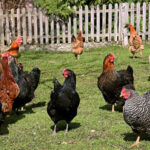
For exhibition purposes, large chicken breeds recognized by the American Poultry Association (APA) are organized into six classes. Most of the classes represent the geographic region where the breeds originated or were developed. Knowing a chicken’s APA class lets you infer a number of things about the breed, including temperament, laying ability, climate tolerance, and […]
Continue Reading

Heredity describes how traits are passed from a hen and rooster to their offspring. These traits are encoded in genes, which in turn are found on chromosomes. Since only the end results — but not the genes and chromosomes themselves — are clearly visible, the mechanics of how heredity works can sometimes seem rather vague. […]
Continue Reading
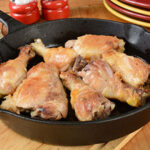
Homegrown chicken can be more flavorful than any other kind. But if you make any of the following mistakes, you may end up serving something unpalatable or even unsafe. Avoid these 5 common mistakes when cooking chicken: Thawing Frozen Chicken When you plan to cook frozen chicken, thaw it in the refrigerator for a day […]
Continue Reading
We recently had the pleasure of hosting Johannes from Omlet at our facility nestled in the heart of Lebanon, Missouri. It was more than just a visit; it was a meeting of minds, a shared understanding of the profound bond between humans and their feathered companions. As we sat down with Johannes, the story of […]
Continue Reading
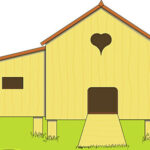
A mistake people often make when they buy or build their first chicken coop is making the coop too small. Nearly everyone says they wish they had a bigger coop. Here are nine reasons you may need a bigger chicken coop: Chicks Grow Fluffy little chicks are incredibly cute. But they grow really fast. As […]
Continue Reading
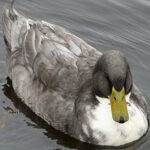
The Swedish duck has its origins in the early to mid 1800s in Pomerania, a region on the Baltic Sea that was once controlled by Sweden. The breed first came to the United States in 1884. The only variety listed in the American Standard of Perfection is the blue variety, accepted in 1904. Physical Attributes […]
Continue Reading
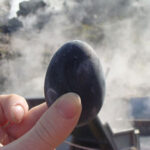
The internet is rife with photographs of eggs from chickens and other poultry that have black shells. Are they a trick of the imagination? Poor photographic lighting? Or true poultry eggs with inky shells? If so, which poultry breed lays a black egg? Maybe Ducks Among ducks, the Cayuga sometimes lays eggs with black shells. […]
Continue Reading
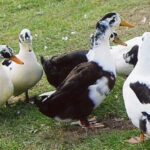
The Ancona duck originated in the 1910s, yet remains a rare breed that has never been listed in the American Standard of Perfection. Cackle Hatchery® is one of its few long-term breeders, having maintained Ancona genetics since 1977. Physical Attributes Anconas are typically white and black, or any combination of white and color, in irregular […]
Continue Reading
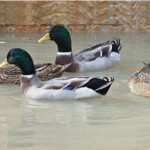
Ducks, like other birds, periodically replace their worn-out feathers with a full set of fresh plumage in a process called molting. Young ducks go through two consecutive molts. After maturity, the hens renew their feathers annually, while the drakes go through two annual plumage changes —the eclipse and nuptial molts. Most domestic duck breeds in […]
Continue Reading
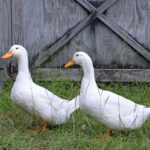
The White Pekin is the quintessential duck that most people think of when they hear the word “duck.” This big white duck derives from an ancient Chinese breed, the name of which translates as “ten-pound duck.” The first Pekins in the United States arrived in the early 1870s, hatched in the Chinese city of Peking, […]
Continue Reading









